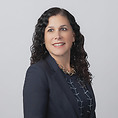Senate Subcommittee Takes up Repeal of Stoneridge, Central Bank
This article also appeared on The D&O Diary.
On September 17, 2009, the Subcommittee on Crime and Drugs of the United States Senate Committee on the Judiciary held a hearing on S.1551, the Liability for Aiding and Abetting Securities Violations Act of 2009. The bill, which was introduced in July by Senator Arlen Specter (D-PA) and co-sponsors Senators Edward E. Kaufman (D-DE), Jack Reed (D-RI) and Sheldon Whitehouse (D-RI), would repeal the Supreme Court's decisions in Central Bank of Denver, N.A. v. First Interstate Bank of Denver, 511 U.S. 164 (1994), and Stoneridge Investment Partners LLC v. Scientific-Atlanta, Inc., 552 U.S. 148 (2008). The hearing rekindled a longstanding debate over the need for private civil suits to deter securities fraud and compensate its victims versus the desire to avoid exposing innocent corporations and professionals to frivolous litigation.
The case in favor of S.1551 was made on behalf of two organizations:
- Change to Win, an alliance of unions that seeks to protect union members' pensions by monitoring corporate activity, offered the testimony of its General Counsel, Patrick J. Szymanski. That organization advocated for a "general overhaul of federal financial legislation" that "must remove two significant barriers to investor claims": Tellabs Inc. v. Makor Issues & Rights, Ltd., 551 U.S. 308 (2007), and Stoneridge. Syzmanski's testimony cited precedent in the criminal and civil fraud contexts that equates the conduct of those who aid and abet a criminal or fraudulent act to that of a principal. The testimony asserts that the facts of Stoneridge, in which claims against Stoneridge's business partners were dismissed, as well as other cases that have arisen from well-known financial scandals (including Adelphia, which arose out of facts similar to Stoneridge; Enron, in which investment banks were protected from civil liability to shareholders; and Refco, in which shareholder claims against Refco's outside counsel were dismissed) demonstrate the unfairness of Stoneridge. The testimony concluded that the assets of persons who "knowingly or recklessly facilitate financial fraud" should be available to the victims of fraudulent activity.
- The North American Securities Administrators Association (NASAA) presented testimony through State of Illinois Securities Department Director Tanya Solov. NASAA opined that private civil actions against aiders and abetters "are a necessary and important complement to state and federal actions," particularly in light of limited governmental resources. NASAA asserted that, in the absence of private investor suits, "there will be no deterrent effect to prevent [secondary actors] from engaging in fraudulent schemes."
The case against S.1551 was made separately by Robert J. Guiffra, Jr., a partner at Sullivan & Cromwell and former Chief Counsel, U.S. Senate Banking Committee (1995-1996), and Adam C. Pritchard, Professor of Law, University of Michigan. Between them, these two witnesses testified that the Private Securities Litigation Reform Act (PSLRA) correctly left to the U.S. Securities and Exchange Commission (SEC) and Department of Justice the sole responsibility for asserting securities claims against secondary actors because those agencies do not have an incentive to bring strike suits against deep-pocket defendants. Moreover, lengthy prison sentences are sufficient deterrents to aiding and abetting.
Second, they argued that S.1551 would hurt the competitiveness of U.S. capital markets and financial centers and would vastly expand the potential liability and litigation expense for innocent third parties. Given the massive damages claimed and enormous legal fees incurred in litigation, even defendants with meritorious defenses have virtually no choice but to settle. The same will be true of secondary actors if the bar to private suits is removed.
At the same time, they suggested alternative, defense-friendly modifications to the securities laws-for example, allowing immediate appeals from denials of motions to dismiss; requiring plaintiffs to plead loss causation with the particularity of a fraud claim; requiring plaintiffs to disgorge any profits on sales at the inflated stock price; eliminating joint and several liability; and limiting the application of the fraud-on-the-market theory of reliance to cases against issuers in which plaintiffs allege that SEC filings (rather than statements to press, for example) of the issuer were false. Another proposal would establish disgorgement instead of compensatory damages as the available measure of damages in securities fraud suits.
John C. Coffee, Jr., Professor of Law, Columbia University, testified at the hearing in support of S.1551 but urged that it include a ceiling on damages for secondary actor defendants. See Testimony of Professor John C. Coffee, Jr., Hearing of the Subcommittee on Crime and Drugs of the U.S. Senate Committee on the Judiciary on "Evaluating S.1551: The Liability for Aiding and Abetting Securities Violations Act of 2009" (Sept. 17, 2009).
As an initial matter, Professor Coffee observed that civil aiding and abetting liability is not a "novel concept" and that it was "well-established" before the Supreme Court's 1994 ruling in Central Bank of Denver. During that time, he argued, there was no evidence that such liability resulted in bankruptcies or drove professional firms out of the industry. Thus, according to Professor Coffee, the "considerable prior experience with private actions against secondary actors" undermines arguments that restoring such suits would result in "doom and disaster."
Turning to the specific need for civil aiding and abetting liability, Professor Coffee focused on two rationales: compensation and deterrence. As to the former, he observed that secondary actors represent a "significant source of compensation for injured investors if a cause of action for aiding and abetting is recognized," pointing to the mega-settlements obtained from the investment banks in the Enron and Worldcom securities litigation. Moreover, one of the chief criticisms of private securities suits-that they typically result in "a series of pocket-shifting wealth transfers" from shareholders who purchased outside of the class period to those that purchased or sold during the class period-does not apply to such litigation against secondary actors. Professor Coffee therefore concluded that, unlike recoveries from issuer defendants, "in a very real sense, recoveries from secondary participants uniquely provide compensation to shareholders."
As to deterrence, Professor Coffee outlined three reasons why restoring private suits against secondary actors would serve to deter securities fraud. First, he posited that secondary actors are "critical gatekeepers of the capital markets" that typically escape liability and therefore are underdeterred under the current regime. In this regard, Professor Coffee questioned the wisdom of leaving the pursuit of secondary actors to public enforcement given recent high-profile issues raised by the SEC's investigation of Bernard Madoff and the agency's proposed settlement with Bank of America. Second, Professor Coffee asserted that secondary actors stand to gain significantly less from securities fraud (usually their fees and the promise for future fees) and therefore are more easily deterred by the threat of civil penalties than a primary violator. Third, according to Professor Coffee, deterrence of secondary actors will block transactions in which the primary violator would have willingly engaged. Given that securities fraud is often predicated on complex transactions that require the participation of secondary actors, the potential secondary deterrent effect on primary violators could be significant.
While extolling these benefits of civil aiding and abetting liability, Professor Coffee was mindful of its main downside-increasing the potential for strike suits against innocent secondary actors. However, he argued that the "opening the floodgates" argument is overstated. According to Professor Coffee, the protections afforded secondary actors by the PSLRA have reduced the threat of frivolous litigation through the heightened pleading standard for scienter and the proportionate liability scheme.
Nevertheless, recognizing the "solid phalanx of professions that will unite to oppose" S.1551, Professor Coffee proposed that the Senate consider a cap on liability for secondary actor defendants to increase the odds of the bill's passage. Id. at 9. In addition, he opined that such a cap is sensible for the following reasons:
- Because secondary actors gain less from fraud, their actions can be deterred without facing multi-billion dollar liabilities.
- Given that markets for numerous secondary actors are highly concentrated, such as accounting firms or the credit rating agencies, the failure of one such actor would be "disruptive to the capital markets."
- A ceiling on liability will allow secondary actors who presently cannot obtain liability insurance to do so.
- "It is fundamentally unfair and undesirable that any professional firm become insolvent and fail because of the conduct of just one individual" or even a few individuals (see, e.g., Arthur Andersen).
- A cap would eliminate the potential for extortionist settlements based on the threat of billion dollar liability.
Accordingly, Professor Coffee proposed the following liability ceiling provision:
The maximum penalty that may be imposed in one or more actions (whether filed in state or federal court and whether the result of a judgment or a settlement in a filed action) relating to the same transaction or conduct shall not exceed the greater of:
(A) In the case of a defendant who is not a natural person,
(1) [10]% of the defendant's average annual income over its last three fiscal years;
(2) [10]% of the defendant's net worth (as determined by its latest audited financial statements);
(3) [10]% of the defendant's market capitalization at the close of its latest fiscal year if its securities are traded in a securities exchange;
(B) In the case of a defendant who is a natural person, $2,000,000;
But in no event shall any such defendant be liable for an amount greater than $[50,000,000].
Id. at 10.
The Next Steps For S.1551
Following yesterday's subcommittee hearing, the next step is likely to be a mark-up of the legislation, after which the bill could be reported by the Judiciary Committee to the full Senate for consideration. However, the likelihood of the bill making it to the full Senate is far from clear. In terms of timing, the legislative calendar for the remaining weeks of this first session of the 111th Congress is quite full with issues concerning appropriations/authorizations and health care and, therefore, there may not be sufficient time to consider S.1551 before the end of 2009-but the 111th Congress does not end until 2010. On the other hand, there is a possibility that the substance of the bill could be incorporated into a larger finance, banking or securities-related reform bill.


